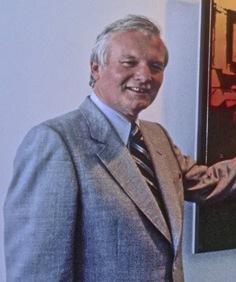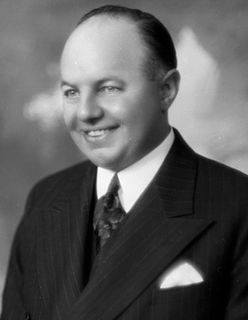This article does not cite any sources .(December 2009) (Learn how and when to remove this template message) |
| |||||||||||||||||||||||||||||||||||||||||
90 seats in the 24th Legislative Assembly of Ontario 46 seats were needed for a majority | |||||||||||||||||||||||||||||||||||||||||
| |||||||||||||||||||||||||||||||||||||||||
| |||||||||||||||||||||||||||||||||||||||||
The Ontario general election of 1951 was held on November 22, 1951, to elect the 90 members of the 24th Legislative Assembly of Ontario (Members of Provincial Parliament, or "MPPs") of the Province of Ontario, Canada.
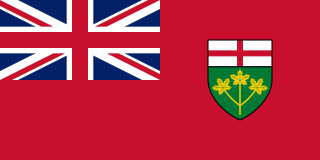
Ontario is one of the 13 provinces and territories of Canada and is located in east-central Canada. It is Canada's most populous province accounting for 38.3 percent of the country's population, and is the second-largest province in total area. Ontario is fourth-largest jurisdiction in total area when the territories of the Northwest Territories and Nunavut are included. It is home to the nation's capital city, Ottawa, and the nation's most populous city, Toronto, which is also Ontario's provincial capital.
The Ontario Progressive Conservative Party, led by Leslie Frost, won a fourth consecutive term in office, increasing its caucus in the legislature from 53 in the previous election to 79—a solid majority.

Leslie Miscampbell Frost, was a politician in Ontario, Canada, who served as the 16th Premier of the Province of Ontario from May 4, 1949 to November 8, 1961. Due to his lengthy tenure, he gained the nickname "Old Man Ontario"; he was also known as "the Silver Fox".
The Ontario Liberal Party, led by Walter Thomson, lost six seats, but regained the role of official opposition because of the collapse of the CCF vote. Albert Wren was elected as a Liberal-Labour candidate and sat with the Liberal caucus.
The Ontario Liberal Party is a provincial political party in the province of Ontario, Canada. The party is ideologically aligned with the Liberal Party of Canada but the two parties are organizationally independent and have separate, though overlapping, memberships.

Walter Cunningham Thomson was a politician, lawyer and rancher in Ontario, Canada. Thomson first ran for the leadership of the Ontario Liberal Party in 1943 but came in fourth place losing to Harry Nixon. He was first elected to the House of Commons of Canada in the 1949 federal election.
Albert Wren was a politician in Ontario, Canada. He was a Liberal-Labour member of the Legislative Assembly of Ontario from 1951 to 1961 for the northwestern Ontario riding of Kenora.
The social democratic Co-operative Commonwealth Federation (CCF), led by Ted Jolliffe, lost all but two of its previous 21 seats with Jolliffe himself being defeated in the riding of York South.
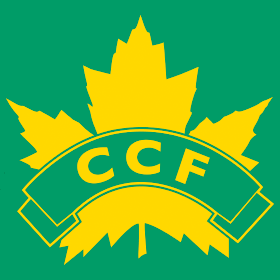
The Co-operative Commonwealth Federation – The Farmer-Labor Party of Ontario, or more commonly known as the Ontario CCF, was a democratic socialist provincial political party in Ontario that existed from 1932 to 1961. It was the provincial wing of the federal Co-operative Commonwealth Federation (CCF). The party had no leader in the beginning, and was governed by a provincial council and executive. The party's first Member of the Legislative Assembly (MLA) was elected by voters in the 1934 Ontario general election. In the 1937 general election, no CCF members were elected to the Ontario Legislature. In 1942, the party elected Toronto lawyer Ted Jolliffe as its first leader. He led the party to within a few seats of forming the government in the 1943 general election; instead, it formed the Official Opposition. In that election, the first two women were elected to the Ontario Legislature as CCFers: Agnes Macphail and Rae Luckock. The 1945 election was a setback, as the party lost most of its seats in the Legislature, including Jolliffe's seat. The party again became the Official Opposition after the 1948 general election, and defeated the Conservative premier George Drew in his seat, when Bill Temple unexpectedly won in the High Park constituency. The middle and late 1940s were the peak years for the Ontario CCF. After that time, its electoral performances were dismal, as it was reduced to a rump of two seats in the 1951 election, three seats in the 1955 election, and five seats in the 1959 election. Jolliffe stepped down as leader in 1953, and was replaced by Donald C. MacDonald.
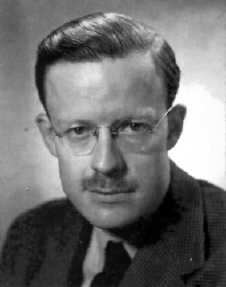
Edward Bigelow "Ted" Jolliffe was a Canadian social democratic politician and lawyer from Ontario. He was the first leader of the Ontario section of the Co-operative Commonwealth Federation (CCF) and leader of the Official Opposition in the Ontario Legislature during the 1940s and 1950s. He was a Rhodes Scholar in the mid-1930s, and came back to Canada to help the CCF, after his studies were complete and being called to the bar in England and Ontario. After politics, he practised labour law in Toronto and would eventually become a labour adjudicator. In retirement, he moved to British Columbia, where he died in 1998.
York South was a provincial riding in Ontario, Canada, that was represented in the Legislative Assembly of Ontario from 1926 to 1999.
One seat was won by J.B. Salsberg of the Labor-Progressive Party (which was the Communist Party of Ontario). LPP leader A.A. MacLeod lost his downtown Toronto seat of Bellwoods in this election and three other LPP candidates were also defeated.
The Labor-Progressive Party was a legal political organization in Canada between 1943 and 1959.

Toronto is the provincial capital of Ontario and the most populous city in Canada, with a population of 2,731,571 in 2016. Current to 2016, the Toronto census metropolitan area (CMA), of which the majority is within the Greater Toronto Area (GTA), held a population of 5,928,040, making it Canada's most populous CMA. Toronto is the anchor of an urban agglomeration, known as the Golden Horseshoe in Southern Ontario, located on the northwestern shore of Lake Ontario. A global city, Toronto is a centre of business, finance, arts, and culture, and is recognized as one of the most multicultural and cosmopolitan cities in the world.









